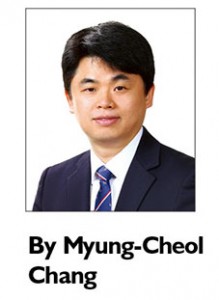
Poongsan Bldg. 23 Chungjeongro, Seodaemun-gu, Seoul 03737, Korea
Tel: 82 2 2262 6288 / Fax: 82 2 2279 5020
E: mcchang@leeinternational.com W: www.leeinternational.com
 The Korean government has taken steps to protect trade secrets more effectively by easing the requirements for trade information to become trade secrets and by enabling broader protection for such information.
The Korean government has taken steps to protect trade secrets more effectively by easing the requirements for trade information to become trade secrets and by enabling broader protection for such information.
Announced in August 2016, the revised version of the Unfair Competition Prevention and Trade Secret Protection Act (Unfair Competition Act) was a response to the increasing damage suffered by Korean companies from the theft of trade secrets.
To facilitate better enforcement, the Korea Intellectual Property Protection Agency would be authorised to investigate violations and offer corrective recommendations. Additionally, the Act would have increased teeth, allowing victims damaged by the unauthorised disclosure of their confidential technologies to recover up to treble damages, and intentional violations of the law could be restrained. This is in sharp contrast with the existing Act, which allows unauthorised disclosure of trade secrets to go unpunished in the absence of an express provision regulating such violations. The revision also would broaden the types of acts that would be considered trade secret violations.
The main points of the proposed revisions to the Unfair Competition Act are as follows:
Definition of trade secrets
Under the existing Unfair Competition Act, the term “trade secrets” includes production methods, sales methods or other useful technical or business information, which information is not known publicly, which has independent economic value and which has been “maintained as confidential based on reasonable efforts”.
Article 2 of the proposed Act deletes the phrase “reasonable efforts” and recognises as trade secrets: production methods, sales methods and other useful technical or business information, as long as the confidentiality of the information has been maintained.
This represents a further loosening of the standard. The deleted phrase “maintained as confidential based on reasonable efforts” was actually the result of a revision dated January 2016, modifying the earlier phrase “maintained based on considerable efforts”. Therefore, the proposed Act would significantly lower the threshold for information to become a trade secret and it would expand the range of protection by deleting “reasonable efforts”. If the proposed Act becomes law, any technical or business information of a company could be considered to constitute a trade secret as long as it had been kept confidential, even without “reasonable efforts” made to maintain the confidentiality.
Treble damages
Article 14-2(6) of the revised Act contains a new provision in which damages arising from the intentional violation of the trade secrets law could be increased up to three times the actual loss. This is also a departure from the existing Unfair Competition Act, which provides that any person who has suffered damage from theft of trade secrets may be compensated only for the amount of his/her actual loss, with the amount of compensation estimated under a provision of the Act.
The revised version considers a number of relevant factors, such as the intent of the violator, how long the violation of the law persisted and how many times the law was violated. Depending on the circumstances, if the law was violated intentionally, the damage award could be considerably heavier under the new Act.
Penal provisions
While the existing Unfair Competition Act prescribes possible imprisonment or a fine for those who have acquired, used or leaked trade secrets to any third party (knowing that they will be used in another country), the revised version specifies and increases the types of acts that would be considered violations, to further enhance protections afforded by the law.
Article 18 of the revised version expands the acts that would constitute a violation of the trade secrets laws from “an act of acquiring, using or disclosing to a third party, trade secrets”, to also include “an act of disclosing or maintaining trade secrets beyond the scope of given authority”, “an act of obtaining trade secrets such as through embezzlement, fraud, threat or any other way that is illegal”, and “an act of refusing or avoiding the request of a trade secret holder to delete or return such trade secrets or keeping copies of the foregoing even after the authority to use or maintain such trade secrets has expired”.
If enacted, the revised version of the Act is likely to significantly improve protection of trade secrets in Korea.


